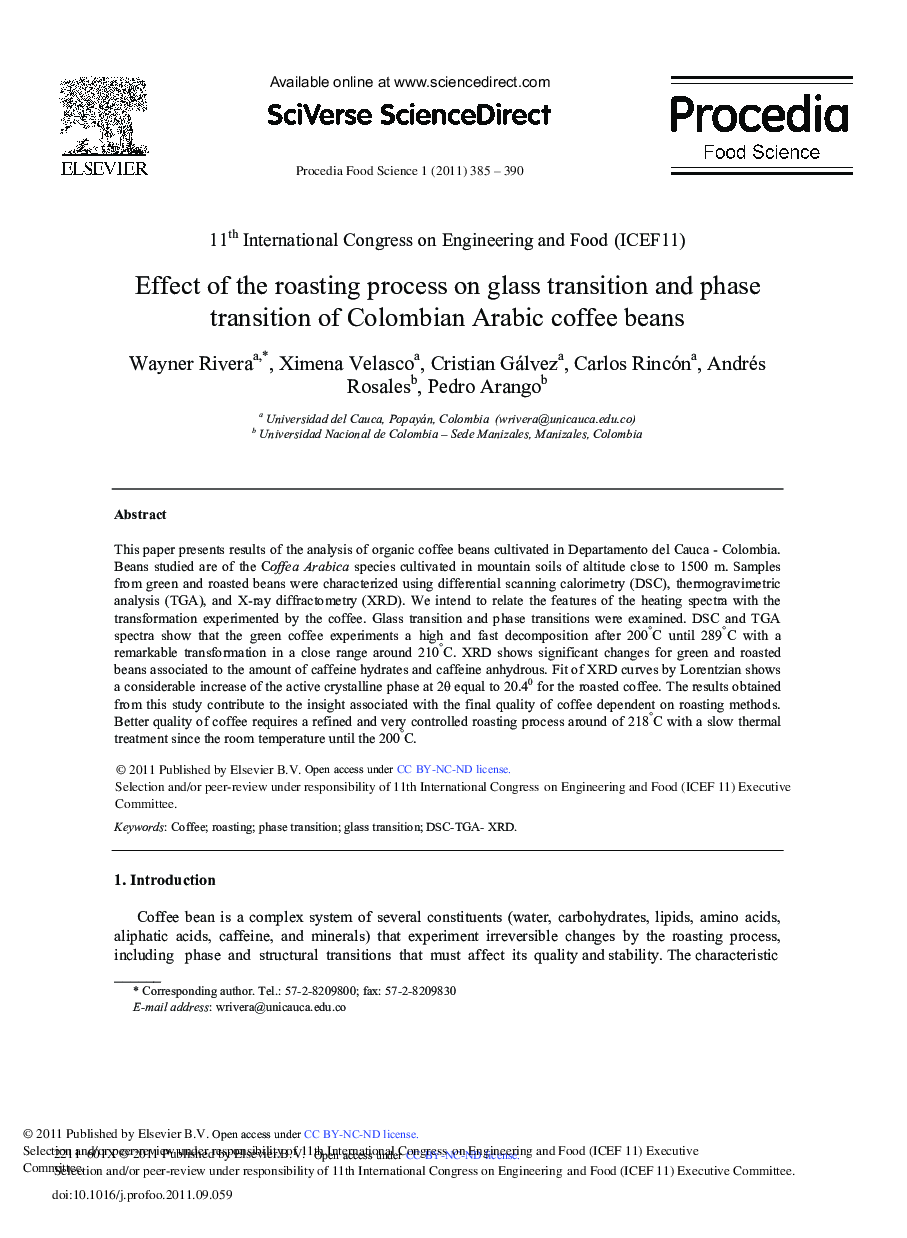| Article ID | Journal | Published Year | Pages | File Type |
|---|---|---|---|---|
| 1264967 | Procedia Food Science | 2011 | 6 Pages |
This paper presents results of the analysis of organic coffee beans cultivated in Departamento del Cauca - Colombia. Beans studied are of the Coffea Arabica species cultivated in mountain soils of altitude close to 1500 m. Samples from green and roasted beans were characterized using differential scanning calorimetry (DSC), thermogravimetric analysis (TGA), and X-ray diffractometry (XRD). We intend to relate the features of the heating spectra with the transformation experimented by the coffee. Glass transition and phase transitions were examined. DSC and TGA spectra show that the green coffee experiments a high and fast decomposition after 200 °C until 289 °C with a remarkable transformation in a close range around 210 °C. XRD shows significant changes for green and roasted beans associated to the amount of caffeine hydrates and caffeine anhydrous. Fit of XRD curves by Lorentzian shows a considerable increase of the active crystalline phase at 2θ equal to 20.40 for the roasted coffee. The results obtained from this study contribute to the insight associated with the final quality of coffee dependent on roasting methods. Better quality of coffee requires a refined and very controlled roasting process around of 218 °C with a slow thermal treatment since the room temperature until the 200 °C.
